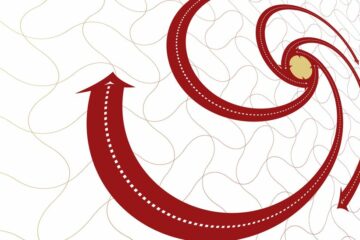
Meredith Gould is a Sociologist by training (Ph.D., NYU), educator by experience, published author (8 books and one always in the works) and working writer for the health and healthcare industries. She provides communication strategy and editorial services to healthcare industry thought leaders. Meredith was also recently named one of the top eleven people to follow in healthcare social media. She is committed to using social media to build community and generate action and is a fellow member of the External Advisory Board at the Mayo Clinic Center for Social Media.
With regards to planning a social media presence, I have asked Meredith to share her insights and guidance — from a sociological perspective. Many of you who are currently in the planning stages of your social media presence and strateg may find this approach and advice very useful.
[hr]
1. Please tell us briefly about your background, how you became interested in helping the healthcare community establish communities, and how your presence on #mccsm and sociological background have come together to help you assist those communities from your unique perspective.
Briefly? I’ll try! I earned my doctorate in Sociology from New York University when theoretical work was valued somewhat more than numbers-crunching. So although I learned quantitative methodologies, I was trained to think critically about what might be going on before designing multivariate research. I was also trained in qualitative methodologies, such as participant and non-participant observation, content analysis, and the like.
My work focused in part on how communities emerge independent of and sometimes within formal organizations. I was also among the first to insist that making a distinction between sex (biological status) and gender (social identity) was important. I left academia after a decade for career in state government and then in the private sector as a marketing communications executive. Sociology continued to inform my perceptions and strategic recommendations.
Meanwhile, personal health adventures got me interested in the healthcare industry. By 2007, I’d shifted my professional focus to healthcare. I discovered healthcare social media (#hcsm) in 2008 when I got onto Twitter. Once on Twitter, I swiftly became fascinated by how many conversations, while lively and thoughtful, did not seem to evince any sociological smarts.
I’ve made it my mission to ask inherently sociological questions during chats I attend. I’ve played this role on #hcsm, but also within the #hpm (hospice palliative medicine) chat community. I occasionally show up (or lurk) on #RNChat, #MDChat, #socpharm, and other industry-related conversations, waving the flag for critical social science thinking whenever I feel compelled ? to the delight or dismay of some moderators.
2. Can you elaborate on what someone interested in establishing a presence in social media needs to consider from a sociological perspective?
First and foremost, anyone interested in social media needs to view “social” in sociological rather than colloquial terms. Colloquially, “social” means “chitchat.” Sociologically, “social” means “group.”
We sociologists know and hope to teach others that groups rather than individuals create meaning. For example, The healthcare industry is the mess it is today because of collective, not individual actions. Those collective actions take place within a social context as well as a political economy ? these fall within the domain of social science.
We also know and hope to teach others that the process by which individuals form a group and that group becomes a community is a social process. Social scientists on Twitter are keen on social media because it allows us to observe, track, and analyze that social process in real (or near-real) time. Social media allows us to see how healthcare communities are created, sustained, and changed over time; not a lot of time because social media speeds everything up.
Practically speaking, anyone wishing to establish a social media presence needs to understand from the get-go that a particular type of participation is essential. Participation must be consistent, ongoing, collegial, and collaborative. It must be part of or help generate community.
Physicians, for example, can and should bring individual gifts/specialties to bear upon any given healthcare conversation, keeping in mind that conversation involves dialogue. The most successful healthcare industry participants are those who generously offer insights, direct others to resources, and contribute more than they take.
3. You recently left a comment on this blog about how most people, especially those trained in the “hard” sciences have not learned the social science that must be understood to use social media wisely and well. Can you elaborate?
Those of us who work in the natural and social sciences share respect for the scientific method. Things can get a bit tense once we get into conversations about what constitutes data, data collection, validity, and reliability.
Plus I do think we can agree that medical educators tend to train students to pay more attention to clinical variables. Not always or not exclusively, of course. There are several medical specialties where social variables are routinely factored in ? geriatric medicine, family medicine, come to mind. I’m always delighted by the sociological sensibility among members of the Collaborative Family Health Association, for example.
My comment had more to do with a way of thinking and viewing the world. The world is a social artifact. During my presentation at the Mayo Clinic Center for Social Media’s first Social Residency Program, I talked about how health and healthcare social media strategists must pay more attention to social context.
More specifically, I underscored the importance of looking beyond audience or target market demographics to explore cultural nuances within and between groups. Doing so does not come easily to those trained in the natural sciences, which is why I encourage physicians and other medical practitioners to get and stay in conversation with social scientists like me!
Meredith Gould, Ph.D.














Thank you, Meredith and Howard for articulating an important aspect of social media — the social context and relationship in health care. This is an area that I am deeply engaged in by studying how and why patients communicate the experience of chronic pain and illness through blogs. Hopefully more qualitative research will emerge on the sociological aspects of creating and maintaining community through tools of social media.
Pam, thank you so much for your comments. This is certainly a very important subject matter that requires further consideration– and study
HI, IJUST HAVEA 4TH ROTATORCUFF REPAIR . 2 0N RT.AND 4TH,ON LT. THEY HAVE ONLY LASTED ABOUT 2YRS. EACH. I AM SO DISCOURAGED THIS TIME THE DR. WOULD DID NOT THINK IT WOULD DO A OPEN CUT. ACCORDING TO THE MRI,THE ROTATOR CUFF HAD SEVERAL THICK TEARS,OTHER PROBLEMS,AND THE THE ROTAOR CUFF WAS BARELY ATTACHED.. HE SAID HE WOULD TRY TO DO ARTHROSCOPY,TO CLEAN IT UP.AND TRY TO ELEMINATE MOST OF THE PAIN. WHEN HE WENT IN HE SAID IT WAS WORSE THAN EXPECTED..THE ENTIRE ROTATOR WAS ONLY BARELY ATTACHED. HE SAID THE ROTATOR CUFF,WOULD HAVE TO BE ATTACHED,AND IF HE COULD DO THAT,IT WOULD PROBABLY SNAP LIKE A RUBBER BAND. THE MAJOR REASON FOR THIS PROBLEM WAS DUE TO ATROPHY OF THE ENTIRE MUSCLE. CIULD NOT BE REPAIRED. I AM SO SICK OF THESE OP. I’VE NOW READY TO GET MY 5TH. REVISION ON MY RT KNEE,AGAIN. WHAT DO YOU THINK OF THIS, I THOUGHT OF PAGEN’TS DIDEASE OR AV NECROSIS TO THE TIBIAL PORTION OF MY RT. KNEE.WHAT DO YOU THINK? AND WHAT ADVICE CAN YOU OFFER ME? 4 th. RT. KNEE , thanksI EVA
I wish I could offer you some meaningful clinical advice… but the laws prohibit us from doing that at this point and my disclaimer must apply.
Before entertaining any other procedures seek a second or even a third opion. Hopefully by a shoulder and or knee specialty trained physician. They can offer you further insight into the possibilities for treatment… and offer your realistic goals about what you might look forward to and whether or not your issues are amenable to surgery, rehab, etc.
Good luck!
Howard Luks
Westchester County, NY
Cool resource Meredith and Howard. You advice has change my perspective about social media. Indeed we should view “social” in a sociological manner.
Erick Kinuthia
Team MDwebpro
Changing one mind at a time! Whatever it takes! Thanks for taking time to leave a comment, Erick.